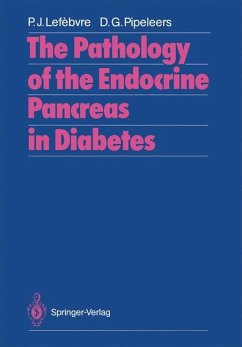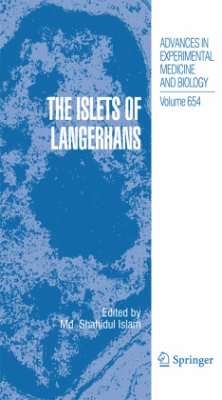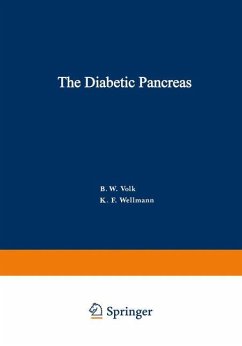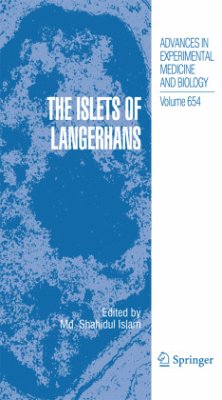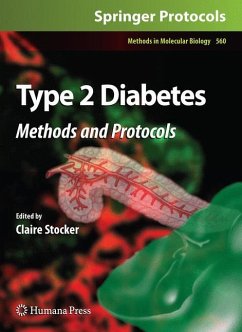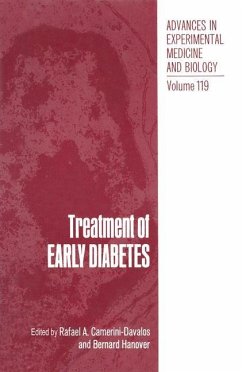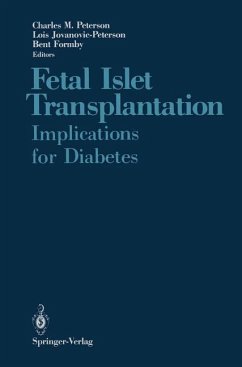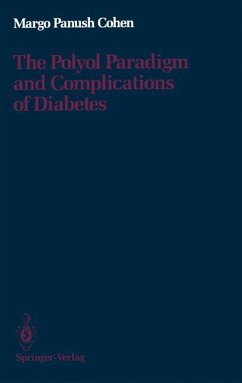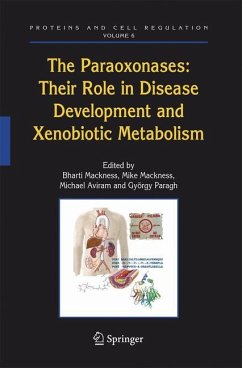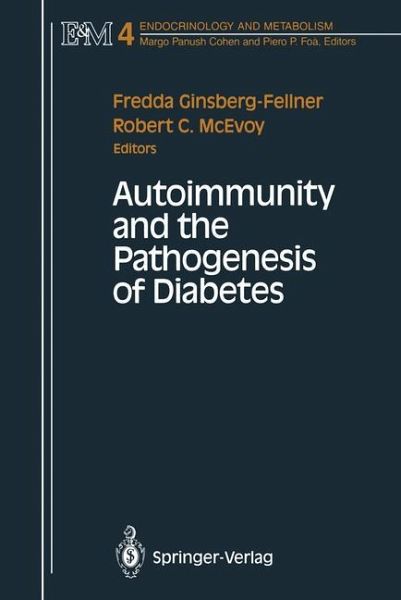
Autoimmunity and the Pathogenesis of Diabetes

PAYBACK Punkte
20 °P sammeln!
It has been a challenge for us to edit this volume of Endocrinology and Metabo lism: Progress in Research and Clinical Practice. The topic of the pathogenesis of insulin-dependent, type I diabetes mellitus is particularly appropriate for this series, since advances in this area have been made, to a large extent, by applying state-of-the-art laboratory techniques to clinical samples. Over the last several years, a number of lines of evidence have been gathered, suggesting that classic type I diabetes mellitus results from the autoimmune des truction of pancreatic beta-cells in genetically susce...
It has been a challenge for us to edit this volume of Endocrinology and Metabo lism: Progress in Research and Clinical Practice. The topic of the pathogenesis of insulin-dependent, type I diabetes mellitus is particularly appropriate for this series, since advances in this area have been made, to a large extent, by applying state-of-the-art laboratory techniques to clinical samples. Over the last several years, a number of lines of evidence have been gathered, suggesting that classic type I diabetes mellitus results from the autoimmune des truction of pancreatic beta-cells in genetically susceptible individuals. This hypothesis is particularly appealing because it offers a rational approach to the prevention of diabetes by immunosuppression. We have tried to present a balanced, authoritative summary of the information currently available to support the autoimmune hypothesis for the pathogenesis of human type I diabetes, to place this information in historical perspective, to include relevant information from animal models of type I diabetes in which more invasive experimentation is ethical, and, finally, to update the reader on the current status of attempts to intervene in the progression of diabetes with immunosuppressive drugs. New York, New York Fredda Ginsberg-Fellner Robert C. McEvoy Contents Preface.. . . .. .. .. . . . . . . . . . . . . ... . . . . . . . . . . . .. . . . . . . .. . . . . v Contributors. . . . . . . . . . . . . . . . . . . . . . . . . . . . . . . . Xl . . . . . . . . . . . . . 1. The Autoimmune Hypothesis of Insulin-Dependent Diabetes: 1965 to the Present . . . . . . . . . . . . ..................... . . . . . .



